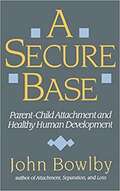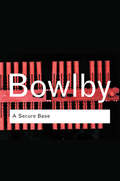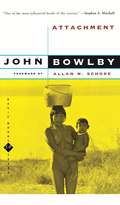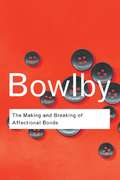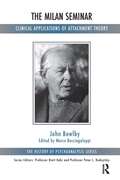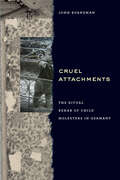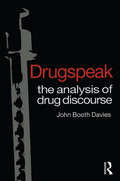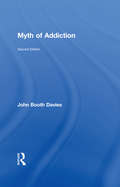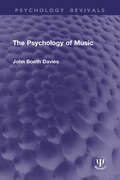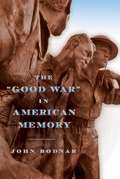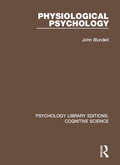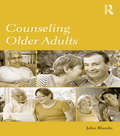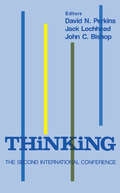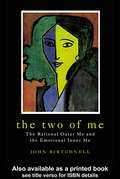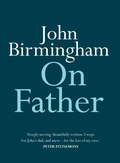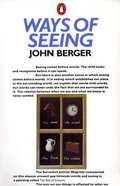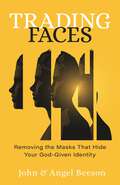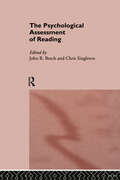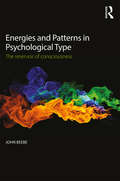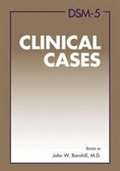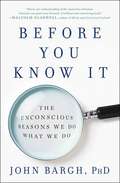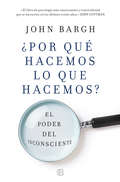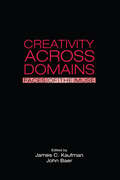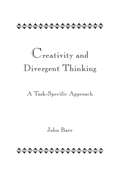- Table View
- List View
A Secure Base: Parent-child Attachment And Healthy Human Development
by John BowlbyThe world-famous psychiatrist and author of the classic works Attachment, Separation, and Lossoffers important guidelines for child rearing based on the crucial role of early intimate relationships.
A Secure Base: Parent-child Attachment And Healthy Human Development (Routledge Classics)
by John BowlbyAs Bowlby himself points out in his introduction to this seminal childcare book, to be a successful parent means a lot of very hard work. Giving time and attention to children means sacrificing other interests and activities, but for many people today these are unwelcome truths. Bowlby’s work showed that the early interactions between infant and caregiver have a profound impact on an infant's social, emotional, and intellectual growth. Controversial yet powerfully influential to this day, this classic collection of Bowlby’s lectures offers important guidelines for child rearing based on the crucial role of early relationships.
Attachment: Second Edition (Attachment and Loss Series, Vol #1)
by John BowlbyThis first volume of John Bowlby's Attachment and Loss series examines the nature of the child's ties to the mother. <P><P>Beginning with a discussion of instinctive behavior, its causation, functioning, and ontogeny, Bowlby proceeds to a theoretical formulation of attachment behavior--how it develops, how it is maintained, what functions it fulfills. In the fifteen years since Attachment was first published, there have been major developments in both theoretical discussion and empirical research on attachment. The second edition, with two wholly new chapters and substantial revisions, incorporates these developments and assesses their importance to attachment theory.
The Making and Breaking of Affectional Bonds (Routledge Classics)
by John BowlbyHelping both parents and psychologists to arrive at a better understanding of the inner emotional world of the infant, this selection of key lectures by Bowlby includes the seminal one that gives the volume its title. Informed by wide clinical experience, and written with the author's well-known humanity and lucidity, the lectures provide an invaluable introduction to John Bowlby’s thought and work, as well as much practical guidance of use both to parents and to members of the mental health professions.
The Milan Seminar: Clinical Applications of Attachment Theory (The History of Psychoanalysis Series)
by John BowlbyThis edited book contains a hitherto unpublished seminar held by the author in Milan, Italy in 1985. The seminar is preceded by a foreword by Kate White, of the Bowlby Centre, and by an introduction by the editor, Marco Bacciagaluppi. The introduction contains excerpts from unpublished correspondence between the author and the editor, carried out over a span of eight years, between 1982 and 1990. After the seminar there are the follow-ups of the three cases presented by Leopolda Pelizzaro, Ferruccio Osimo and Emilia Fumagalli, and a report by Germana Agnetti and Angelo Barbato, who gave hospitality to the author and his wife. This is followed by a contribution by Ferruccio Osimo on experiential dynamic psychotherapy, an application of attachment theory, with a long case study. At the end there are some concluding remarks by the editor.
Cruel Attachments: The Ritual Rehab of Child Molesters in Germany
by John BornemanThere is no more seemingly incorrigible criminal type than the child sex offender. Said to suffer from a deeply rooted paraphilia, he is often considered as outside the moral limits of the human, profoundly resistant to change. Despite these assessments, in much of the West an increasing focus on rehabilitation through therapy provides hope that psychological transformation is possible. Examining the experiences of child sex offenders undergoing therapy in Germany--where such treatments are both a legal right and duty--John Borneman, in Cruel Attachments, offers a fine-grained account of rehabilitation for this reviled criminal type. Carefully exploring different cases of the attempt to rehabilitate child sex offenders, Borneman details a secular ritual process aimed not only at preventing future acts of molestation but also at fundamentally transforming the offender, who is ultimately charged with creating an almost entirely new self. Acknowledging the powerful repulsion felt by a public that is often extremely skeptical about the success of rehabilitation, he challenges readers to confront the contemporary contexts and conundrums that lie at the heart of regulating intimacy between children and adults.
Drugspeak: The Analysis of Drug Discourse
by John Booth DaviesDrugspeak The Analysis of Drug Discourse describes the way in which conversations between drug users vary and change according to context and circumstance in ways that suggest that there is no single truth about the state we call addicted. The central thesis of the book is that the explanations that drug users give for their drug use make sense not so much as sources of facts, but as primarily functional statements shaped by a climate of moral and legal censure. Consequently the significance of drug conversations lies not in their literal semantics but in the purposes such conversations serve. The argument raises a number of fundamental issues about the performative rather than the informative nature of language, about the nature of the scientific facts concerning drug use, and about the very nature of science itself. Starting with a general overview of the problems arising from a mechanistic and deterministic view of science, the book identifies a need for a new approach to the un
Myth of Addiction: Second Edition
by John Booth DaviesFirst published in 1998. Routledge is an imprint of Taylor & Francis, an informa company.
The Psychology of Music (Psychology Revivals)
by John Booth DaviesWhat happens when we listen to music? Why are certain forms pleasing and others not? John Davies was both a psychologist and a talented musician and The Psychology of Music, originally published in 1978, explores the nature of man’s eternal need for, and love of, music. Drawing on current research in psychology and social psychology at the time, he explores the processes beneath this love affair in an easy and fluent style liberally punctuated with amusing and, occasionally, startling examples.
The "Good War" in American Memory
by John BodnarThe "Good War" in American Memory dispels the long-held myth that Americans forged an agreement on why they had to fight in World War II. Looking back after more than half a century there seems little dispute that World War II was a 'good war', but at the time and for many decades after U.S. society was driven by an intense debate over why it had been necessary to enter such a conflict. This study explores the arguments.
Physiological Psychology (Psychology Library Editions: Cognitive Science)
by John BlundellPhysiological psychology deals with the interaction between ‘under the skin’ physiological variables and the personal and social context in which organisms live. Originally published in 1975, much of this book has relevance for the understanding of human action: knowledge of physiological mechanisms underlying psychological functions can throw light on conditions such as obesity, schizophrenia, and the emotional disorders, and on procedures such as psychosurgery and drug therapy.
Counseling Older Adults
by John BlandoCounseling older adults is not equivalent to counseling the general population, and specialized skills and knowledge, as well as sensitivity to the contexts in which older adults live, are essential in working successfully with this population. This text provides an introduction to gerontological counseling, integrating the basic skills of working with older adults with theories of counseling and aging. Specific counseling issues discussed include mental health counseling, career counseling, rehabilitation counseling, and family counseling. Along with these, important contextual factors such as race/culture, social class, social justice, spirituality, Alzheimer’s and other dementias, and family issues are considered in light of the latest research. Each chapter contains case studies, discussion questions, a glossary, and suggestions for further reading to reinforce the material presented.
Thinking: The Second International Conference (Psychology Library Editions: Cognitive Science Ser.)
by John Bishop Jack Lochhead D. N. PerkinsFirst published in 1987. Routledge is an imprint of Taylor & Francis, an informa company.
The Two of Me: The Rational Outer Me and the Emotional Inner Me
by John BirtchnellHow much of what we do is directed by conscious, deliberate decisions and how much originates in unconscious, automatic directives? This is the question explored in The Two of Me via an engaging combination of phenomenological subjective investigation and objective considerations of mental processes and specific structures. John Birtchnell puts forward the thesis that many more of our actions than we might imagine are determined unconsciously. Not only are unnoticed automatic actions motivated unconsciously, but also seemingly conscious or 'thought out' behaviours are actually determined and reinforced by unconscious exigencies. Even where we produce a reasoned discourse taking responsibility for why we hold certain thoughts, there is always the possibility that these explanations serve and follow from an unconscious driving force. The conscious mind seems to act as spokesperson for both itself and the unconscious mind. Investigating this dual aspect of the person, the book addresses the issue across a range of mental processes including memory, language, problem-solving, dreams, delusions, hallucinations and more complex constructs such as the arts, humour and religion.
On Father
by John BirminghamJohn Birmingham's father died. And his life fell apart. The next six months were spent grinding through the black forests of depression until he finally emerged out of the darkness onto sunlit upland. A unique yet universal story, On Father reaches out to everyone who has experienced and survived deep grief.'Deeply moving. Beautifully written. I wept. For John's dad, and anew - for the loss of my own.' PETER FITZSIMONS
Ways of Seeing: Based on the BBC Television Series with John Berger
by John BergerContains seven essays. Three of them use only pictures. Examines the relationship between what we see and what we know.
Trading Faces: Removing the Masks that Hide Your God-Given Identity
by John Beeson Angel BeesonA biblical and practical guide on how to replace false identities with the healthy truthSeeking fulfilment, many Christians turn to identities that promise to give their lives meaning: profession, roles as spouse or parent, personality types, even sexuality--anything that can be held up to others as the empowering core of who they are. But when these new labels don’t give them any real foundation for hope, they end up feeling disappointed, directionless, and defeated. Those false identities turn out to be only sand.John and Angel Beeson have seen this problem again and again in their respective roles as pastor and counselor. And they want searching Christians to know the truth: a fulfilling understanding of self can only be found by rooting one's identity in the unchangeable and nonnegotiable understanding of who we were created to be.This husband-and-wife team considers ten identities that masquerade as truth and challenge readers to trade those labels for the ones Christ offers. They explain why true identity matters, how our masks can suffocate us, and how substitute identities can become idolatry. They share real struggles from real people. And they offer hope in a comprehensive index of our identities in Christ, both individual and the collective identity of the church.
The Psychological Assessment of Reading
by John Beech Chris SingletonA useful guide to best practice including reviews of the latest and most helpful tests available. In Part One, contributors discuss the theory of reading assessment including issues such as screening, legal aspects, memory and visual problems, computer based assessment and the dyslexias. Part Two contains the review section where experts give comprehensive reviews of named tests.
Energies and Patterns in Psychological Type: The reservoir of consciousness
by John BeebeThis book encapsulates John Beebe's influential work on the analytical psychology of consciousness. Building on C. G. Jung's theory of psychological types and on subsequent clarifications by Marie-Louise von Franz and Isabel Briggs Myers, Beebe demonstrates the bond between the eight types of consciousness Jung named and the archetypal complexes that impart energy and purpose to our emotions, fantasies, and dreams. For this collection, Beebe has revised and updated his most influential and significant previously published papers and has introduced, in a brand new chapter, a surprising theory of type and culture. Beebe's model enables readers to take what they already know about psychological types and apply it to depth psychology. The insights contained in the fifteen chapters of this book will be especially valuable for Jungian psychotherapists, post-Jungian academics and scholars, psychological type practitioners, and type enthusiasts.
Dsm-5® Clinical Cases
by John BarnhillDSM-5® Clinical Cases presents patient cases that exemplify the mental disorders categorized in the newly released DSM-5®, bringing DSM-5® alive for teachers and students of psychiatry, psychology, social work, nursing, and related mental health and healthcare fields. Cases are cross-referenced with DSM-5® and help the reader understand diagnostic concepts, including symptoms, severity, comorbidities, age of onset and development, dimensionality across disorders, and gender and cultural implications. <P><P> Every feature in the book helps to bridge the distance between the formal classification and the real-life presentation of patients: <P><P> * All cases are original and previously unpublished, making for fresh, compelling reading for both experienced clinicians and those new to diagnostic classification. Case authors were selected for their expertise in the disorder described in the case. For ease in identifying specific cases, case titles are clinically relevant, based on the primary complaint, and identify the DSM-5® diagnosis described.* Each case adheres to a consistent format developed by the editors to fully illuminate the disorder being profiled. Features may include history of present illness, family psychiatric history, medical history, mental status exam results, DSM-5® diagnostic features, lab and physical findings, and a summary.* A brief discussion follows each case, analyzing the clinical presentation, highlighting key points, and exploring issues of comorbidity that may complicate both the diagnosis and subsequent treatment. This approach is especially helpful since few cases in real-life are unambiguous.* Easy-to-use appendixes enable readers to locate cases by type of disorder, special interests, and DSM-5® diagnosis.* The book is designed to serve as a companion text in a variety of contexts -- from abnormal psychology courses to medical school and residency training programs. In addition, those studying for specialty examinations will find reviewing the cases very useful. <P><P> Fascinating, practical, and instructive, DSM-5® Clinical Cases succeeds in bringing the DSM-5® to the examining room.
Before You Know It: The Unconscious Reasons We Do What We Do
by John BarghDr. John Bargh, the world’s leading expert on the unconscious mind, presents a groundbreaking book, twenty years in the making, which gives us an entirely new understanding of the hidden mental processes that secretly govern every aspect of our behavior.For more than three decades, Dr. John Bargh has been responsible for the revolutionary research into the unconscious mind, research that informed bestsellers like Blink and Thinking Fast and Slow. Now, in what Dr. John Gottman said “will be the most important and exciting book in psychology that has been written in the past twenty years,” Dr. Bargh takes us on an entertaining and enlightening tour of the forces that affect everyday behavior while transforming our understanding of ourselves in profound ways. Telling personal anecdotes with infectious enthusiasm and disclosing startling and delightful discoveries, Dr. Bargh takes the reader into his labs at New York University and Yale where he and his colleagues have discovered how the unconscious guides our behavior, goals, and motivations in areas like race relations, parenting, business, consumer behavior, and addiction. He reveals what science now knows about the pervasive influence of the unconscious mind in who we choose to date or vote for, what we buy, where we live, how we perform on tests and in job interviews, and much more. Because the unconscious works in ways we are completely unaware of, Before You Know It is full of surprising and entertaining revelations as well as tricks to help you remember to-do items, shop smarter, and sleep better. Destined to be a bestseller, Before You Know It is an intimate introduction to a fabulous world only recently discovered, the world that exists below the surface of your awareness and yet is the key to knowing yourself and unlocking new ways of thinking, feeling, and behaving.
¿Por qué hacemos lo que hacemos?: El poder del inconsciente
by John BarghEntre anécdotas sorprendentes y maravillosos descubrimientos, el doctor Bargh revela lo que sabe ahora la ciencia acerca de la fascinante influencia del inconsciente en hechos clave de nuestra vida como la elección de pareja, qué compramos, dónde vivimos, nuestro rendimiento en los exámenes y mucho más. Destinado a ser un best seller, ¿Por qué hacemos lo que hacemos? Es una profunda introducción al mundo que existe bajo la superficie de nuestra conciencia. Un libro fascinante de lectura obligada para curiosos, en cuya trascendental investigación se han basado éxitos de venta como Inteligencia intuitiva y Pensar rápido, pensar despacio. Un viaje revelador que nos ofrece una nueva comprensión de los procesos mentales ocultos que gobiernan, en secreto, todos los aspectos de nuestra conducta. Críticas:«Este libro supone un gigantesco paso adelante en nuestra comprensión de los misterios de la conducta humana. Espléndido y convincente.»Malcolm Gladwell, autor de Blink. El poder de pensar sin pensar «Un libro fascinante y provocador de la mayor autoridad mundial en la ciencia de la mente inconsciente.»Daniel Gilbert, autor de Tropezar con la felicidad «Respaldado por interesantes hallazgos científicos y experimentales. Ciencia a la vez divulgativa y académica con una dosis de autoayuda, todo bien envuelto en un gratificante paquete.»Kirkus Reviews
¿Por qué hacemos lo que hacemos?: El poder del inconsciente
by John BarghEntre anécdotas sorprendentes y maravillosos descubrimientos, el doctor Bargh revela lo que sabe ahora la ciencia acerca de la fascinante influencia del inconsciente en hechos clave de nuestra vida como la elección de pareja, qué compramos, dónde vivimos, nuestro rendimiento en los exámenes y mucho más. Destinado a ser un best seller, ¿Por qué hacemos lo que hacemos? Es una profunda introducción al mundo que existe bajo la superficie de nuestra conciencia. Un libro fascinante de lectura obligada para curiosos, en cuya trascendental investigación se han basado éxitos de venta como Inteligencia intuitiva y Pensar rápido, pensar despacio. Un viaje revelador que nos ofrece una nueva comprensión de los procesos mentales ocultos que gobiernan, en secreto, todos los aspectos de nuestra conducta. Críticas:«Este libro supone un gigantesco paso adelante en nuestra comprensión de los misterios de la conducta humana. Espléndido y convincente.»Malcolm Gladwell, autor de Blink. El poder de pensar sin pensar «Un libro fascinante y provocador de la mayor autoridad mundial en la ciencia de la mente inconsciente.»Daniel Gilbert, autor de Tropezar con la felicidad «Respaldado por interesantes hallazgos científicos y experimentales. Ciencia a la vez divulgativa y académica con una dosis de autoayuda, todo bien envuelto en un gratificante paquete.»Kirkus Reviews
Creativity Across Domains: Faces of the Muse
by James C. Kaufman John BaerCreativity Across Domains: Faces of the Muse sorts through the sometimes-confusing theoretical diversity that domain specificity has spawned. It also brings together writers who have studied creative thinkers in different areas, such as the various arts, sciences, and communication/leadership. Each contributor explains what is known about the cognitive processes, ways of conceptualizing and solving problems, personality and motivational attributes, guiding metaphors, and work habits or styles that best characterize creative people within the domain he or she has investigated. In addition, this book features: *an examination of how creativity is similar and different in diverse domains; *chapters written by an expert on creativity in the domain about which he or she is writing; *a chapter on creativity in psychology which examines patterns of performance leading to creative eminence in different areas of psychology; and *a final chapter proposing a new theory of creativity--the Amusement Park Theoretical Model. This book appeals to creativity researchers and students of creativity; cognitive, education, social, and developmental psychologists; and educated laypeople interested in exploring their own creativity.
Creativity and Divergent Thinking: A Task-Specific Approach
by John BaerDo general-purpose creative-thinking skills -- skills like divergent thinking, which is touted as an important component of creative thinking no matter what the task domain -- actually make much of a contribution to creative performance? Although much recent research argues against such domain-transcending skills -- including several new studies reported in this book -- the appeal of such general skills remains strong, probably because of the theoretical economy and power such skills would provide. Divergent thinking, in particular, has had an incredible staying power. Despite its many flaws, divergent thinking remains the most frequently used indicator of creativity in both creativity research and educational practice, and divergent thinking theory has a strong hold on everyday conceptions of what it means to be creative. Reviewing the available research on divergent thinking, this book presents a framework for understanding other major theories of creativity, including Mednick's associative theory and a possible connectionist approach of creativity. It reports a series of studies (including the study that won APA's 1992 Berlyne Prize) that demonstrate the absence of effects of general creative-thinking skills across a range of creativity-relevant tasks, but indicate that training in divergent thinking does in fact improve creative performance across diverse task domains. The book then ties these findings together with a multi-level theory, in which a task-specific approach to creativity is strengthened by recasting some divergent-thinking concepts into domain- and task-specific forms. This book fills the gap between divergent-thinking theory and more recent, modular conceptions of creativity. Rather than advocate that we simply discard divergent thinking -- an approach that hasn't worked, or at least hasn't happened, because of many attacks on its validity and usefulness -- this book shows how to separate what is useful in divergent-thinking theory and practice from what is not. It shows that divergent-thinking training can be valuable, although often not for the reasons trainers think it works. And it offers specific suggestions about the kinds of creativity research most needed today.
